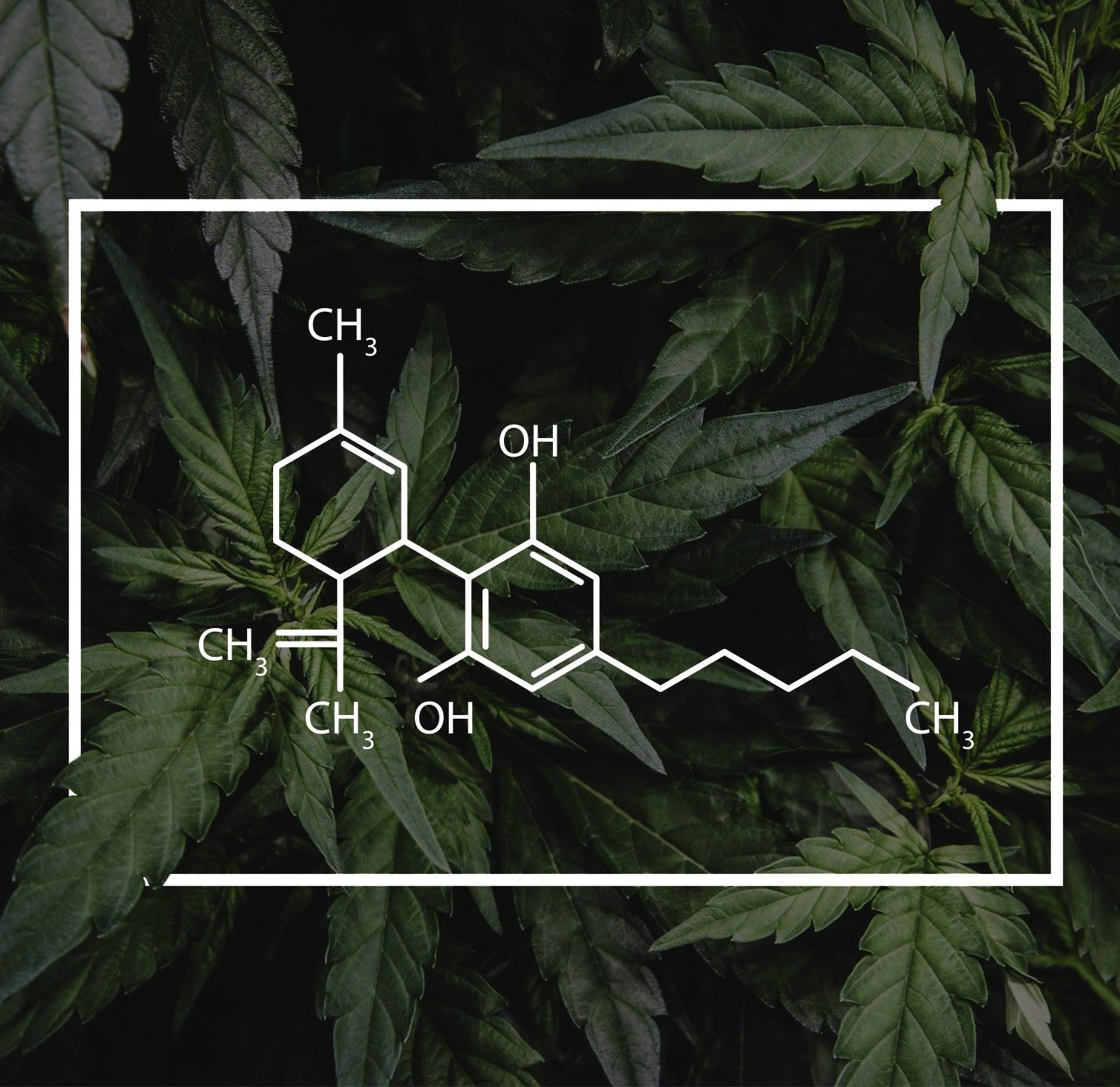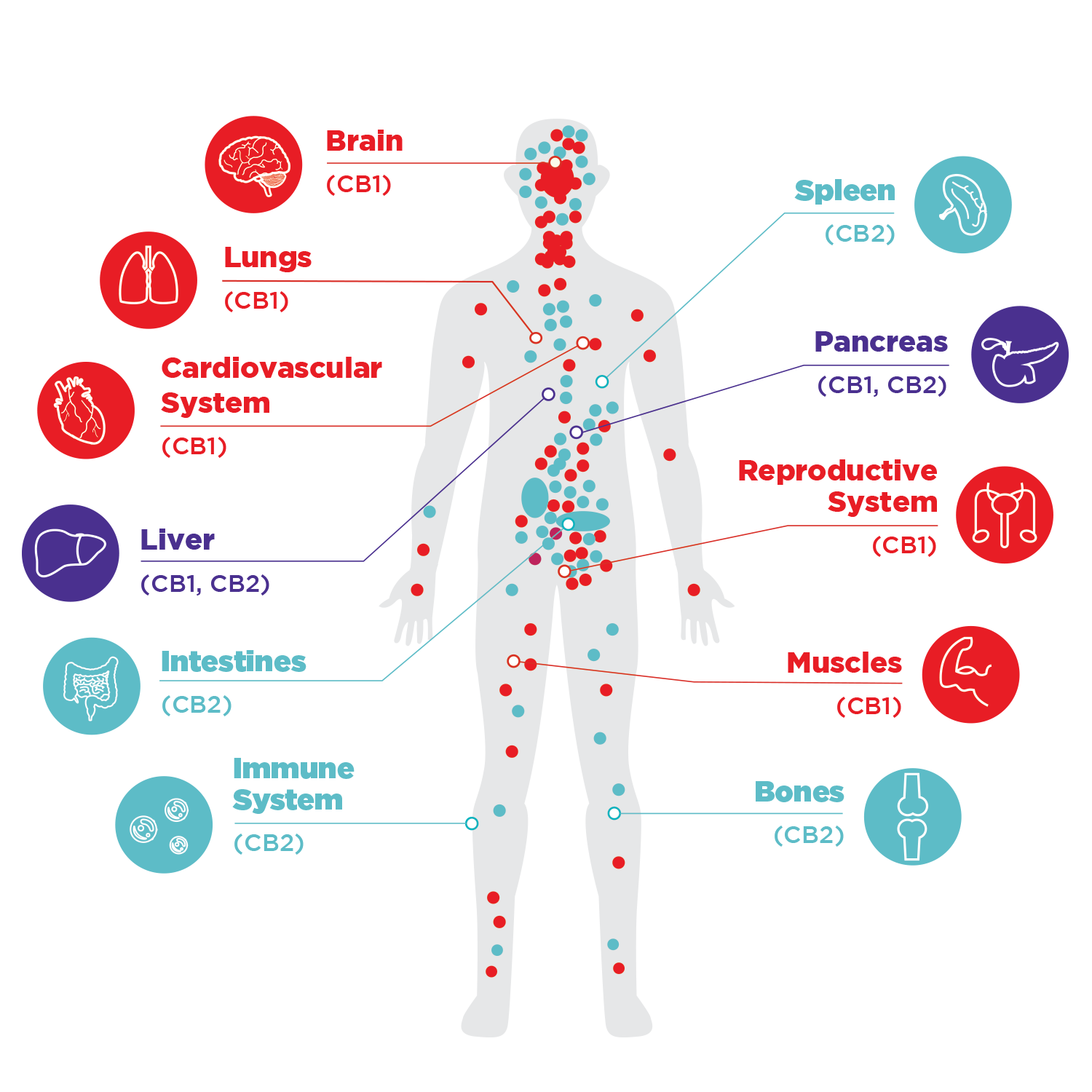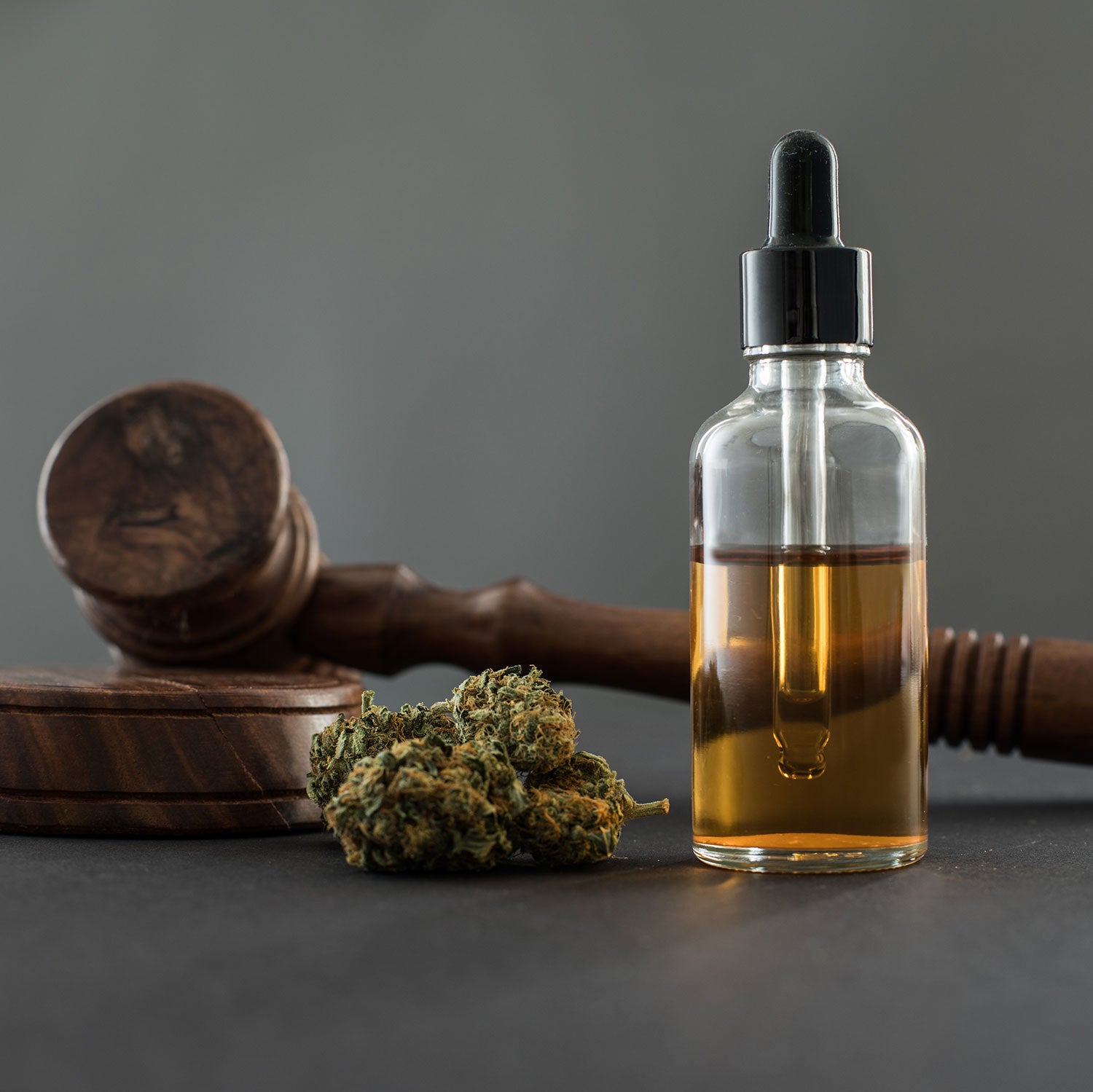
Cannabidiol (CBD) is a major cannabinoid compound found in the cannabis plant, famed for its therapeutic potential and non-intoxicating properties. Unlike tetrahydrocannabinol (THC), CBD does not induce psychoactive effects, making it a great option for those seeking relief without euphoria. CBD interacts with the body's endocannabinoid system (ECS), influencing various physiological processes to potentially alleviate symptoms associated with conditions like chronic pain, anxiety, depression, epilepsy, inflammation, and sleep disorders. Widely available in diverse forms such as oils, tinctures, capsules, edibles, and topicals, CBD has garnered significant attention as a natural remedy for a range of health concerns.
How Does CBD Work?
CBD (cannabidiol) is a compound derived from the cannabis plant that has a wide variety of therapeutic effects. Studies have shown that CBD interacts with the endocannabinoid system (ECS) in the human body in incredibly positive ways.
The ECS is a complex network of receptors, enzymes, and endocannabinoids that helps regulate various physiological processes, including mood, appetite, pain sensation, and immune function. CBD works primarily by interacting with two key cannabinoid receptors, CB1 and CB2 (but in a different way than THC). While THC directly binds to these receptors, causing intoxication, CBD is believed to temper their activity indirectly, influencing neurotransmitter release and receptor function.
CBD has been shown to interact with other receptors and signaling pathways in the body, contributing to its diverse range of potential therapeutic effects. CBD has been found to activate serotonin receptors, which are involved in mood regulation and anxiety. By enhancing serotonin signaling, CBD can offer anxiolytic and antidepressant effects, making it a promising candidate for treating various mental health issues. CBD has also been shown to interact with transient receptor potential (TRP) channels, which play a role in pain perception and inflammation. By modulating TRP channel activity, CBD can alleviate pain and reduce inflammation, offering relief for conditions such as arthritis, neuropathic pain, and inflammatory disorders.


Is CBD Oil Legal?
Cannabidiol (CBD) is technically legal in the United States, Washington D.C., the U.S. Virgin Islands, and Puerto Rico. In 2018, the United States Congress passed what’s known as the Farm Bill, a package of legislation updated every five years that covers a wide range of programs from subsidies for farmers to protections for consumers. The most valuable piece of legislation passed within this recent update was the legalization of the cultivation, production, sale, and possession of hemp at the federal level. Hemp-derived CBD and hemp-derived extracts are legal, provided they conform to the 0.3% THC limit.
Currently, 47 of the 50 U.S. states — as well as the District of Columbia — have legalized the sale and use of hemp-derived CBD products. However, some states have some small restrictions on what kind of CBD products can be sold. However, cannabis and CBD laws are constantly changing, so verify the legal status of any cannabinoid-based product before use.

